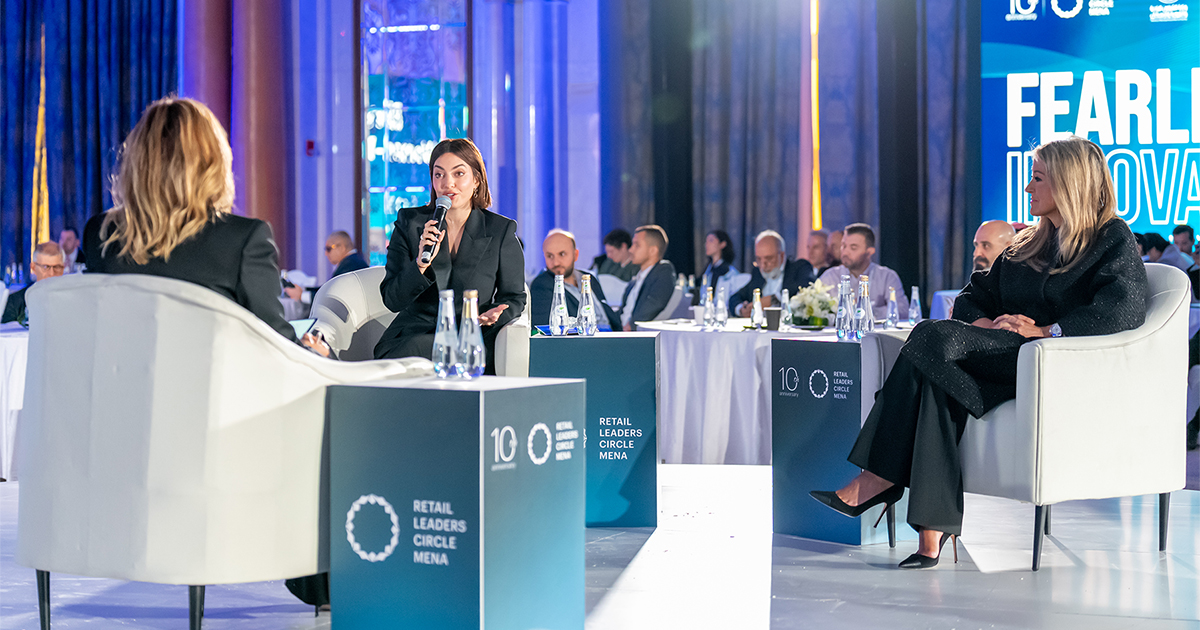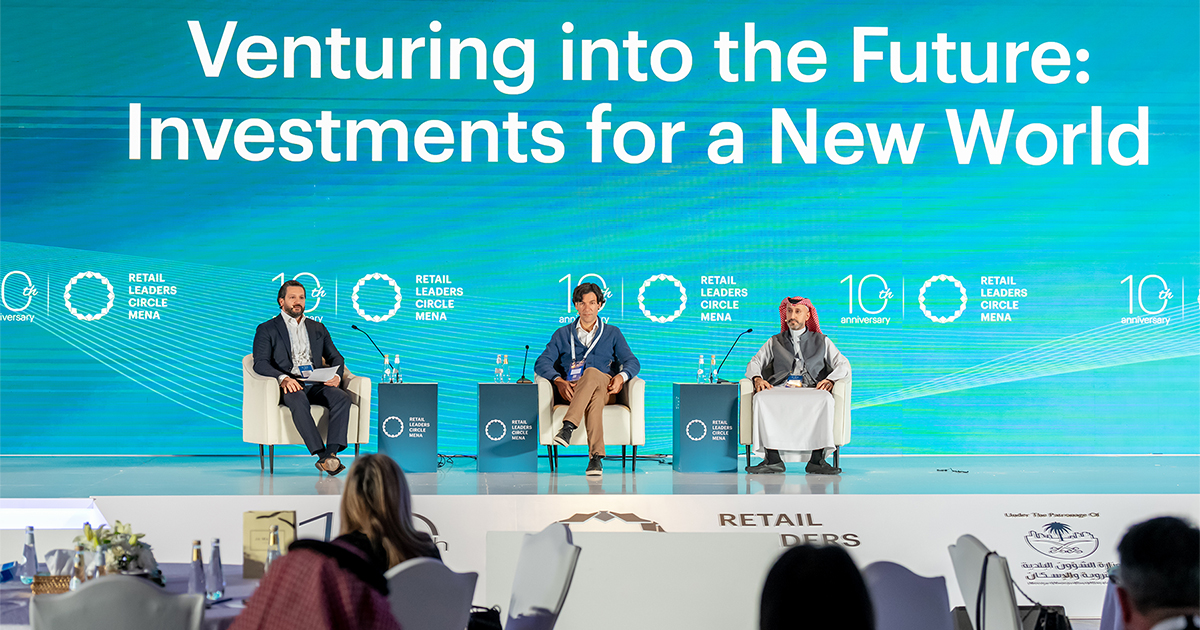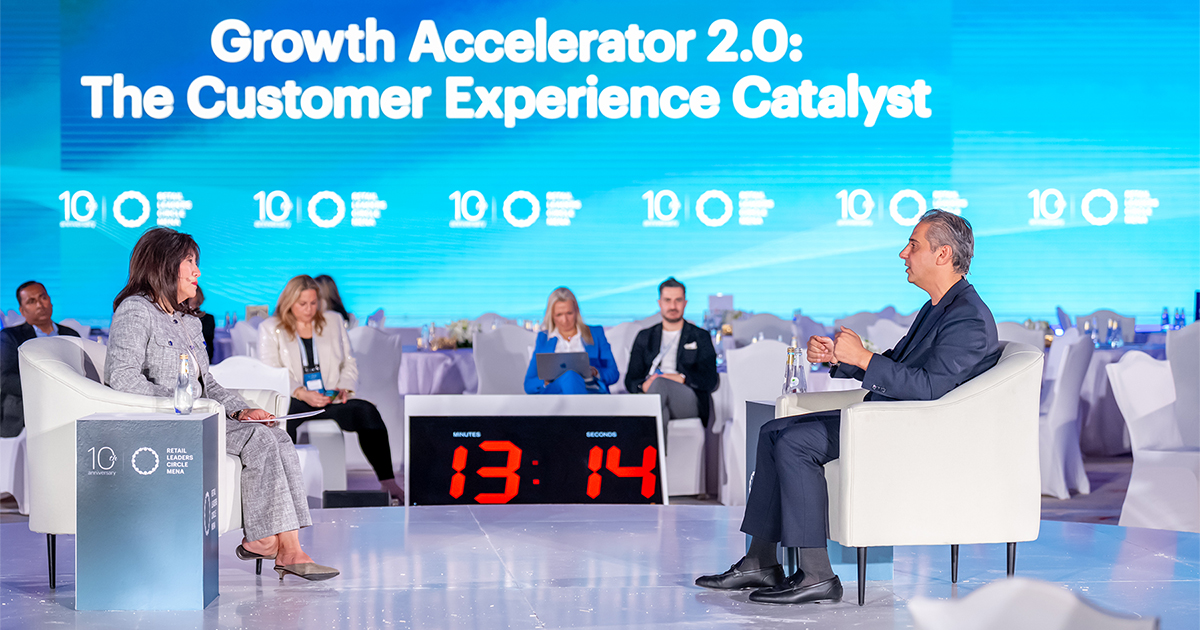Karen Wazen, Digital Entrepreneur and Marigay McKee, Co-Founder of Fernbrook Capital Management LLC discuss with Lynn Al Khatib, Vice President of Communications at Chalhoub Group the multifaceted roles women play in the retail industry.
Transitioning from a social media or content creation background to launching a brand came with its set of advantages and challenges for Karen Wazen. Having an established personal brand meant there was little margin for error, as any mistake could have disproportionately high costs, both financially and in terms of the trust and reputation built with their community. Moreover, she faced skepticism due to prevailing stereotypes about women and content creators in the business world, with doubts cast over their brand’s potential to scale and compete with established names. However, this skepticism served as motivation to prove the critics wrong and demonstrate the viability and growth potential of their brand.
Another challenge was the lack of financial literacy among women, particularly in the context of entering the business world. The overwhelming nature of business jargon and feeling outmatched in discussions dominated by more experienced, predominantly male, counterparts initially hindered their confidence. Despite these obstacles, her belief in the brand’s vision and the power of storytelling fueled her determination to succeed. Storytelling is highlighted as a crucial element of brand building, in a journey of overcoming gender-based barriers with self-belief and resilience in the face of industry challenges.
Karen Wazen’s experience underscores the evolving landscape where digital engagement and personal narratives are integral to retail success. Initially, the e-commerce platform was her primary focus, leveraging personal reach to gain early traction. However, the collaboration with department stores and wholesalers marked a turning point, emphasizing the importance of these partnerships for brand credibility and market expansion. This strategy enabled the brand to enter new markets beyond their regional boundaries, partnering with other retailers to target diverse consumer segments. Interestingly, the pivot towards a direct-to-consumer (B2C) retail strategy emerged somewhat accidentally opening a retail space in Lebanon, which unexpectedly outperformed expectations, revealing the potential of retail stores to contribute significantly to the brand’s growth. Despite maintaining a presence in department stores, which bolstered brand credibility, owning retail outlets provided a unique experience and a closer connection to consumers, emerging as a focal point in their business strategy. This approach has resulted in remarkable growth, highlighting the significant impact of integrating physical retail spaces into their business model.
The strategic expansion from digital platforms to physical retail underscores the shifting paradigms of the industry, where an online presence complements offline experiences, enhancing brand visibility and consumer reach. This approach illustrates the changing consumer behavior and the growing demand for an integrated shopping experience, emphasizing the need for brands to adopt a hybrid retail strategy to remain competitive.
Marigay McKee’s career trajectory through iconic retail brands to a venture fund in consumer tech reflects the profound evolution of retail, particularly in department stores. From the 1980s, when department stores dictated fashion trends in a teacher-pupil dynamic, the 1990s’ shift towards a more consultative experience akin to a doctor-patient relationship marked a departure from the one-size-fits-all approach of the past. The arrival of the digital age in the 2000s accelerated these changes, compelling department stores to evolve into hosts for their guests in an increasingly experience-oriented industry. However, the digital revolution challenged their dominance, effectively reversing the dynamic to where department stores became guests striving to meet the sophisticated demands of a knowledgeable consumer base. This story line underscores the necessity for continuous innovation in retail, emphasizing the importance of digital integration, personalization, and experiential engagement in maintaining relevance and competitiveness in the evolving retail landscape.
Emphasizing the importance of a clear brand identity, there are many challenges faced by Saudi designers in making their brands resonate across diverse markets. The key lies in understanding geographical preferences and customer demands, suggesting that while a brand may thrive in the Middle East, its success might not directly translate to markets like the United States or Europe without some degree of adaptation. This calls for flexibility and a nuanced approach to brand presentation across different regions, underscoring the potential role of cross-border commerce platforms in supporting homegrown brands to expand internationally.
Investing in female founders often leads to a chain reaction, attracting more female-led businesses to the fund as Marigay McKee noted. As a result, 65% of their fund comprises female-founded and led companies, not out of a preference for women but due to their knack for presenting disruptive and innovative ideas that challenge the traditional retail and branding landscape.
The importance of diverse thinking and the complementarity it brings to business strategy, is highlighted in developing algorithms for online businesses. Female engineers tend to create solutions that are more personalized and better aligned with consumer needs, presenting a significant growth opportunity for female-founded brands, especially in domains like beauty and fashion. This perspective underlines the unique advantages of female-led innovations in creating more relevant and consumer-centric online experiences, reinforcing the potential for such brands to scale rapidly in their respective industries.
The importance of inclusivity and diversity in fostering a vibrant retail ecosystem underscores the importance of mentorship, financial literacy, and access to supportive networks for women in leadership and entrepreneurship within the industry. The intricate relationship between brand identity, consumer engagement, and retail strategy offers valuable insights into meeting consumer needs, building digital brands, and strategically utilizing physical spaces.
 We’ve heard many times over the last two days about being authentic and having your expression of your brand. But at the same time in the world that we’re living in today and the fast-paced world of retail, it’s really important to invest in brand marketing and have first of all, a very, very clear definition of what your brand is.
We’ve heard many times over the last two days about being authentic and having your expression of your brand. But at the same time in the world that we’re living in today and the fast-paced world of retail, it’s really important to invest in brand marketing and have first of all, a very, very clear definition of what your brand is. 






